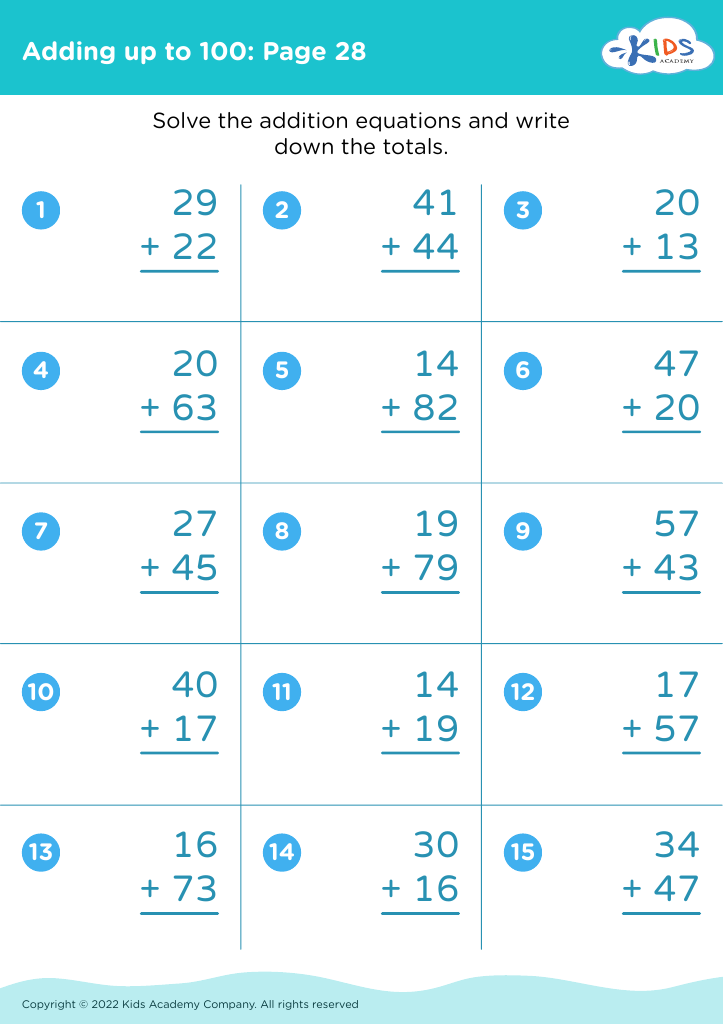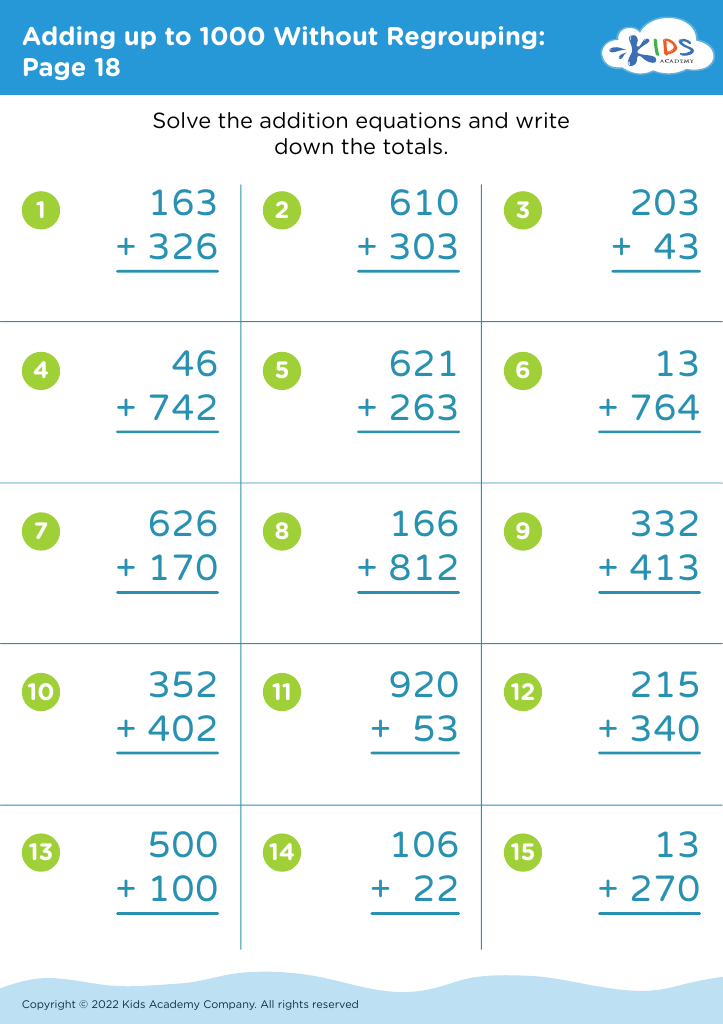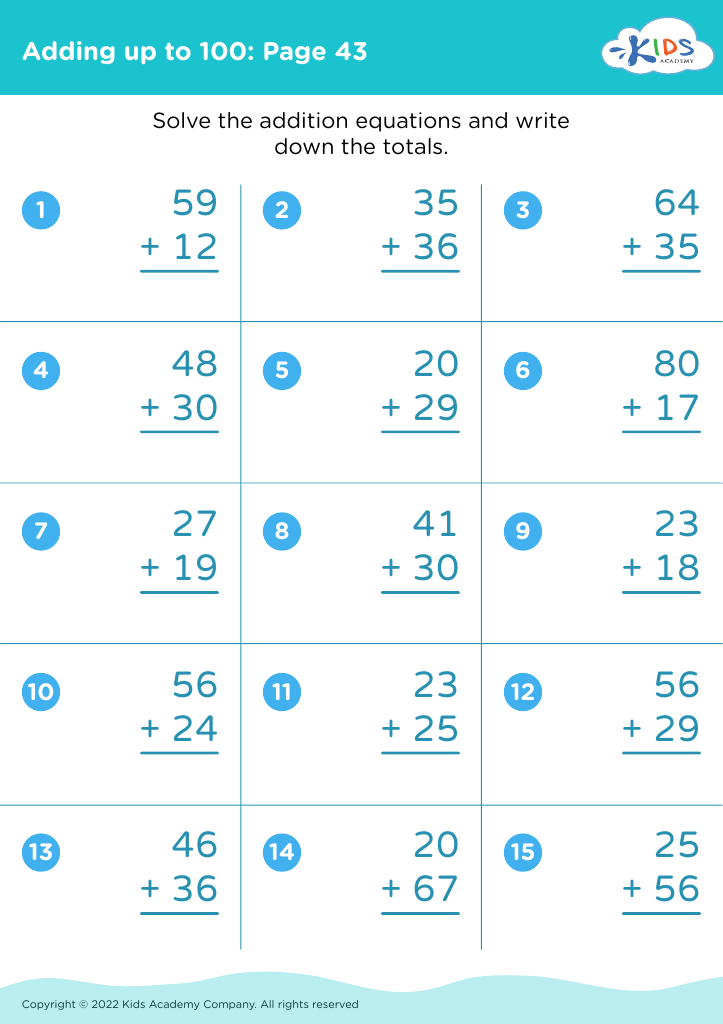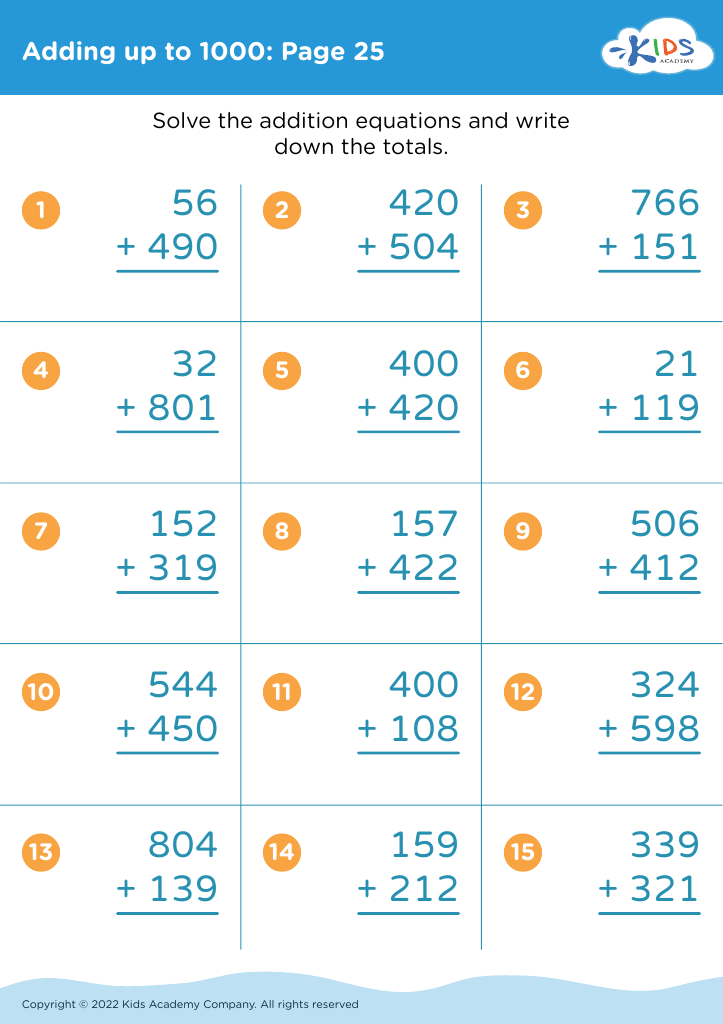Improving mathematical skills Addition Worksheets for Ages 7-8
4 filtered results
-
From - To
Unlock your child’s potential with our "Improving Mathematical Skills: Addition Worksheets for Ages 7-8." Specifically crafted to enhance mathematical fluency, these worksheets offer diverse addition exercises that not only align with educational standards but also make learning fun and engaging. Each worksheet is designed to strengthen foundational addition skills, encourage problem-solving abilities, and boost confidence in young learners. From simple sums to more complex equations, our resources cater to all learners, ensuring progress at every step. Equip your child with the tools they need for math success and watch their skills flourish!
Helping children aged 7-8 improve their addition skills is crucial for their academic success and cognitive development. At this age, foundational math skills are established, forming the building blocks for more advanced mathematical concepts. By mastering addition early, children develop confidence and a positive attitude towards math, which often translates to better performance in other math-related tasks and subjects.
In addition, addition is not just about numbers; it enhances critical thinking and problem-solving skills. Through practicing addition, children learn to analyze problems, recognize patterns, and develop systematic approaches to finding solutions. These skills are applicable beyond math, aiding in everyday decision-making and complex reasoning tasks.
Furthermore, solid addition skills are essential for everyday activities such as handling money, telling time, and measuring ingredients in a recipe. These practical applications reinforce learning and highlight the importance of math in daily life.
Parental and teacher involvement plays a pivotal role in fostering a supportive learning environment. By actively engaging in a child's math education, parents and teachers can provide encouragement, identify and address learning gaps early, and customize learning strategies to suit individual needs. This collaboration ensures children develop strong, lasting mathematical foundations that will benefit them throughout their educational journey and in life.










.jpg)









